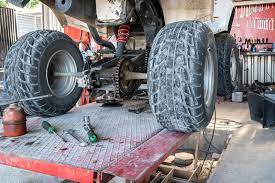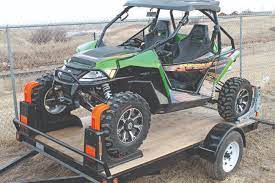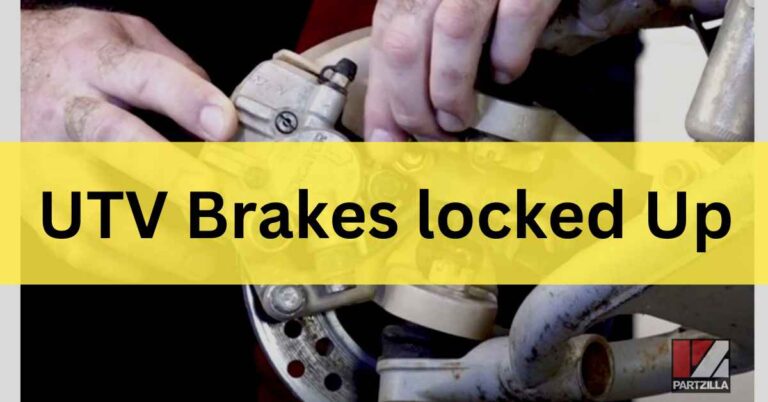Is 1500 Hours Too Much for a UTV? Increase UTV Lifespan In 2023
A well-maintained and carefully treated UTV from a reputable brand can last 500-1000 hours or more. After this mark, there might be a need for additional extensive maintenance or repairs.
Is 1500 Hours A Lot For A UTV? 1500 hours on average is considered a quality lifespan for a brand vehicle. A vehicle with around 500 or above hours on the track is usually considered good, while 5,000 hours or more should have high miles.
However, it’s essential to remember that hours or mileage isn’t the only factor to consider when purchasing a used UTV.
The age of the vehicle is also a crucial consideration, as an older vehicle with low mileage may not be as reliable as a newer one with slightly higher mileage.
In this article, I have explained the average lifespan of UTV, the factors affecting and how to increase the lifespan.
Table of Contents
Let’s get into it for a better understanding.😊
How Many Hours Do UTVs Last on Average?
While the exact number of hours a UTV can last can vary widely, here are some general guidelines to give you an idea of what to expect:
- 200 to 500 Hours: This is typical for a cheap, generic, or Low-quality UTV that has been neglected, improperly maintained, or frequently subjected to abuse or misuse.
- 500 to 1500 Hours: A well-made UTV from a reputable brand regularly maintained and reasonably maintained can last up to 2000 hours.
- 2000 Hours or More: A good-quality UTV from a well-known brand that is meticulously maintained and stored properly can last up to 4000 hours if maintained safely.
- 5000 Hours or More: A top-notch high-quality UTV from a reputable brand can last more than 5000 hours or even longer when properly maintained and kept appropriately.

Factors Affecting A UTVs Life Expectancy:
Several factors determine a UTVs life expectancy, including:
1. Brand and Quality:
A UTVs endurance and longevity are significantly influenced by its brand and quality. A cheap, poorly-made UTV will likely not last as long as a high-quality UTV.
2. Maintenance and Upkeep:
Regular maintenance and proper upkeep of the UTV can significantly extend its lifespan.
The vehicle may break down before it should if the Maintenance protocol by the manufacturer is not followed or neglected.

Failure to follow the manufacturer’s recommended maintenance schedule or neglecting the vehicle can cause it to break down prematurely.
3. Usage and Riding Style:
How the UTV is ridden and used also plays a vital role in a long life. a UTV frequently pushed beyond its rated capacity or used aggressively will likely wear out faster.
4. Storage Place:
Proper storage is critical in protecting a UTV from environmental damage and wear and tear. a UTV that is stored indoors in a dry environment is less likely to suffer from rust or other types of damage.
How to Increase UTV Lifespan:
To ensure their long life, UTVs need regular maintenance and upkeep just like any other machine. Here are some tips on how to increase the lifespan of your UTV.
1. Follow the Maintenance Schedule:
Following the suggested checklist provided by the manufacturer is one of the simplest methods to make sure your UTV lasts for a long time.
This covers routine brake checks, air filter upgrades, and oil changes. General maintenance neglect might result in expensive repairs and a shorter lifespan.
2. Keep It Clean:
Dirt, mud, and debris can damage your UTVs moving parts and decrease lifespan. Keeping your UTV clean is important by hosing it off and washing it regularly. Also, ensure the air filter is clean and free of dirt or debris.
3. Proper Storage:
Storing your UTV in a dry, clean environment away from the elements can help increase its lifespan. Minimize exposure to hot or humid conditions, as well as direct sunlight. Consider using a UTV cover to protect it from dust and debris.

Moisture can lead to rust and electrical component failure. To prevent this, store your vehicle in a dry, well-ventilated area, and keep it covered with a waterproof tarp or cover.
- UV exposure from the sun can damage plastic fenders, seats, and tires over time. To protect your vehicle from sun damage, park it in a shaded area or use a UV-resistant cover.
- Creatures like mice can chew through wiring and fuel lines, causing expensive damage to your vehicle. To prevent this, park your vehicle in a garage or enclosed space, and consider using mouse traps or repellents.
- Storing your UTV properly during the off-season can help prevent damage from weather and moisture. If you don’t have a garage or other enclosed space, consider investing in a storage unit or renting space in a covered facility.
4. Check Fluids:
Regularly check fluid levels, including oil, coolant, and brake fluid. Low levels can cause significant damage to your UTVs engine or transmission. Be sure to follow the recommended fluids.
5. Keep the Battery Charged:
Ensure the battery is always charged if you want to store your UTV for a long time. A dead battery can cause serious harm and shorten the lifespan of a vehicle.
6. Drive Responsibly:
How you drive your UTV can significantly impact its lifespan. Avoid rough terrain, excessive speeds, and abrupt starts and stops. Follow the manufacturer’s recommended speed limits and avoid overloading the vehicle.
Factors To Consider Before Buying A Used UTV:
Considering these factors can help to make an informed decision when buying a used UTV. Properly examining these factors can help identify any potential issues.
- Checking for overheating
- Burnt engine oil
- Blue smoke from the exhaust
- Shocks for leaking fluid and clunking
- Maintenance history
- Leaking fluids
- Wiring and cables
- Worn-out clutch
- Broken driveshaft
- Cracks in the cv boots and axles
Frequently Asked Questions:
1. How Do I Choose The Right UTV For My Needs?
While choosing a UTV, you must take into account the desired uses for the vehicle, the ground you will be riding on, your expenditure, the features and accessories you want.
2. Is 200 Hours For A UTV A Lot?
As long as a UTV is appropriately maintained, not involved in any accidents, and is in decent health, 200 hours is typically not considered a lot of time. Two hundred hours in a single year is on the higher end.
3. Is 400 Hours For A UTV A Lot?
Around 400 operating hours, a UTV will probably start to show some wear, and wearing components like brakes, wheel bearings, and axle joints might need to be replaced.
It should still have quite a bit of life remaining, though, providing maintenance has been kept up with and hasn’t been mistreated.
Final Words:
It is important to properly care for your UTV through regular maintenance and inspections to extend its lifespan.
By implementing some of the tips outlined in this article, such as proper storage, operating on appropriate terrain, and performing regular maintenance, you can increase the lifespan of your UTV and save money in the long run.
Plus, it is crucial to understand the impact of high hour counts on the lifespan of your UTV and take steps to avoid excessive wear and tear. You can get the most use out of your UTV for many years if you take good care of it.
Similar Post:






